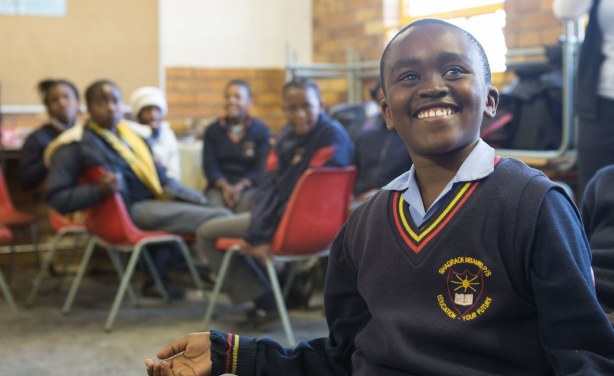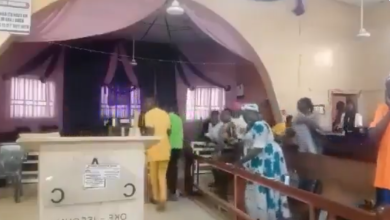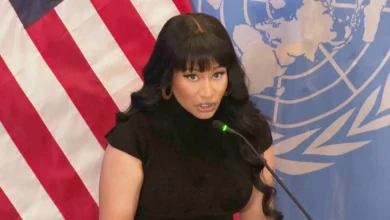Africa’s Academic Situation: How people can get education in 2021

The pandemic affected not only the health of the population worldwide but the economy, politics, as well as education matters. When speaking of the academic situation in Africa, it is believed to be worse like ever before but there are prospects to study despite all the difficulties. Let’s find out what African students can expect from education in 2021.
Educational Struggles in Africa in 2020
Before the pandemic, the world has already faced a learning crisis. Around 53% of 10 years old kids living in the countries of the third world have been found to fail reading with comprehension. The onset of the pandemic led to taking approximately 1.6 billion students out of schools which only strengthened the learning poverty. To deal with such a situation, many educational institutions went for distance learning online, but some African schools are out of mobile devices. That’s why governments and development partners work their best to remedy that learning poverty.
Today, Sub-Saharan Africa greatly suffers from the learning crisis where it was estimated at 87% before the onset of COVID-19. So, the increase might be small at 4% on average. It means that the situation would affect those students who have been already found to fail reading.
If speaking of Sub-Saharan Africa, the Middle East, and Northern Africa regions, children there are below the minimum proficiency level. The pandemic may occasionally increase the learning deprivation gap. It will then lead to double or triple costs of remedying the learning crisis in the continent.
The HRW organization conducted a variety of remote interviews with educational representatives, and students from the Africa continent including Nigeria, Zambia, Kenya, Morocco among others to learn the effects of COVID-19 on education out there. The results showed that many students have been excluded from their educational institutions. Other findings showed that most children did not get any education after the closure of schools. They did not have any instructions, interactions from their teachers on further learning. Only some children from private schools have received some kind of printed assignments, but they had nothing to do with normal education. The prints instructed students just to reread the previous notes and repeat the exercises. Those who continued with book lessons found it hard to study without the teacher’s supervision. Finally, some students claimed to receive revision papers twice a month through WhatsApp.
One of the biggest concerns regarding distance learning is related to limited internet data in some students, hence, they cannot simply download learning materials. Teachers also face such difficulties as they may disappear and after some time show up and say they did not have enough Internet credit.
Finally, one of the concerns of the learning crisis is home isolation which leads to stress, anxiety, and depression. It may result from a lack of communication with the student’s school community.
What to Expect in 2021?
It is hard to speak of any prospects of improved educational level in Africa while the COVID-19 pandemic is still blooming. As per the World Health Organization, 47 countries of the Africa continent are being affected with the COVID-19, over 1 728 307 cases are identified, and over 24 464 deaths are reported from the virus. COVID-19 vaccine is undergoing its trials, while Africa participation in them is involved with Egypt and South Africa regions only.
- Nowadays, the leading health and educational organizations build plans to revive learning, and there are a few approximate strategies that may help to remedy education.
- Improve self-study skills. Independent learning in Africa is not a matter that has been previously cultivated, hence, students have no idea of how to study at home alone without the teacher’s supervision. The schools should work on a student’s ability to understand and learn remotely with the help of ZOOM or similar chats available in the region;
- Parents engagement. Parents should support and participate in learning alongside their children. Africa should take the model of California, and India, where school communities engage parents in weekly meetings to discuss the strategies to help their children learn effectively;
- Benefit from existing technologies. While it is common for developing countries to equip schools with expensive mobile devices, Africa should benefit from using offline technology if other means are not available. It concerns cell phones and radio;
- School awareness of kids’ mental health conditions. As isolation may occasionally lead to abnormal mental behaviors, schools should follow up with all their enrolled students’ health on a regular basis. It concerns the interaction with parents as well who may confirm their kids are supervised;
- Public support. During the pandemic, many African schools are closed and left without any monetary support to help teachers earn money for a living. The best strategy is to support or join teaching on a voluntary basis.
That’s just an approximate recommendation until the COVID-19 situation is resolved. There are no prospects of the due date, so schools may be closed for longer. Those students who have online devices should do their best to access online educational courses that are widely available for free and from the best universities and colleges that support education.
If thinking of the nearest future, and predicting what may happen to education in Africa in 2021, there is probably one answer – it will revive from the ashes, but the previous difficulties will remain the same. The governments will face much cost to repair those gaps, and most probably not all the teaching professionals would be able to resume their daily operations. Nowadays, more office/school specialists switch to online work. Lauren Bradshaw, a professional writer says that her company Customwritings.com constantly monitors the educational situation in the world in order to understand what changes are taking place in academic writing and where the demand for their services is growing. Therefore, those students who lag behind their homework, or teachers who look for new online opportunities may think about such agencies further on.










